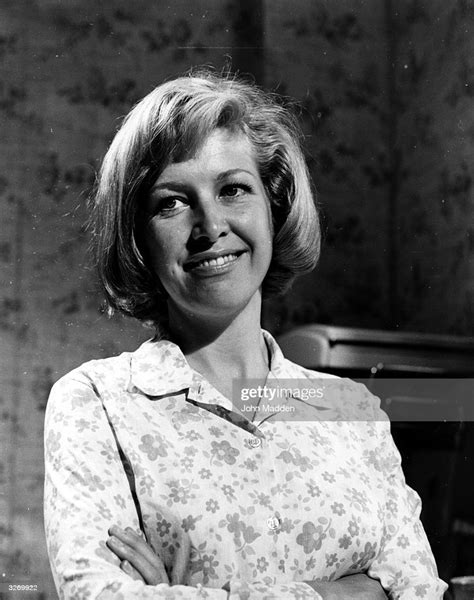A Quote by Anne Reid
I don't ever think of myself as coming from a particular class because my father was working class but made his living as a newspaper foreign correspondent - someone of no fixed abode, as he used to say - who was as comfortable dining with the Mountbattens in India as he was having a pint with the boys. He was very gregarious.
Related Quotes
I suppose I don't have to work, but I do love working. I class myself as a working-class girl, and I've never stopped working. When I'm offered shows here, there and the other, I do an awful lot because I feel other people would love to be offered what I'm offered; who am I to say no? I'm definitely working class, and I always will be.
I was brought up in a very naval, military, and conservative background. My father and his friends had very typical opinions of the British middle class - lower-middle class actually - after the war. My father broke into the middle class by joining the navy. I was the first member of my family ever to go to private school or even to university. So, the armed forces had been upward mobility for him.
We were very - we were a working family, and my father had this very simple philosophy, simple working class approach. If you spoke to my father and said, "Mr Smith across the road, what do you think of Mr Smith?", he'd only - he'd only say a couple of words. He'd say, "He's a worker", and that meant this bloke got up in the morning, went out, worked, brought his money home, fed his wife and kids, housed them, got them to school, educated them, made sure they were safe and all that. It had so much connotations to it.
My father's father wrote for a Philadelphia newspaper and aspired to be a playwright. We had in our house a couple of crazy unproduced plays that he had written. For the one creative writing class I took in my life, I didn't do any writing - I decided that I would plagiarize his terrible play to not fail the class.
I think anything we do outside of Gym Class Heroes still falls under the Gym Class Heroes umbrella. There's really no method to the madness. With Gym Class, it's more of a democratic process, and when I'm working on solo stuff, it's just me, either working with producers or sitting in a room by myself. They balance and complement each other.




































